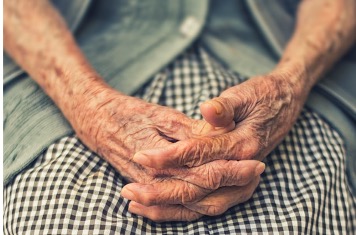As our loved ones age, it’s natural for them to face challenges in maintaining their independence. However, recognizing when these challenges escalate to the point where additional support is needed can be difficult. In this guide, Donna Hurley of Fresno explores the subtle and not-so-subtle signs that indicate your elderly loved one may be struggling to maintain their independence. From cognitive changes to physical limitations, understanding these signs can help you make informed decisions about alternative living arrangements or additional support services to ensure their safety and well-being.

Cognitive Changes
One of the earliest signs that your elderly loved one may be struggling to maintain their independence is cognitive changes. This can manifest as forgetfulness, confusion, or difficulty with decision-making. Forgetting appointments or medications, repeating questions, or getting lost in familiar places are common indicators of cognitive decline. Pay attention to any changes in memory or cognition and consider consulting a healthcare professional for further evaluation.
Mobility Issues
Mobility issues can significantly impact your loved one’s ability to perform daily activities independently. Difficulty walking, frequent falls, or reluctance to leave the house due to fear of falling are signs that mobility may be compromised. Additionally, changes in gait or balance may indicate underlying health issues that require attention. Assess the safety of your loved one’s home environment and consider modifications or assistive devices to enhance mobility and reduce fall risk.
Decline in Personal Hygiene
A decline in personal hygiene can be a red flag that your loved one is struggling to care for themselves independently. Noticeable changes in grooming habits, unkempt appearance, or body odor may indicate difficulty with tasks such as bathing, dressing, or grooming. This decline may be due to physical limitations, cognitive impairment, or depression. Approach the topic sensitively and offer support in maintaining personal hygiene as needed.
Changes in Eating Habits
Changes in eating habits, such as appetite loss, weight loss, or difficulty preparing meals, can signal that your loved one is struggling to meet their nutritional needs independently. Skipping meals, eating poorly balanced diets, or neglecting food expiration dates may indicate challenges with meal planning, grocery shopping, or cooking. Encourage healthy eating habits and consider meal delivery services or assistance with meal preparation if needed.
Neglect of Household Responsibilities
Neglect of household responsibilities, such as paying bills, managing finances, or maintaining cleanliness, may indicate that your loved one is overwhelmed or unable to manage these tasks independently. Unopened mail, unpaid bills, cluttered living spaces, or neglect of home maintenance may be signs of declining cognitive or physical function. Offer assistance with household tasks or consider hiring professional services to help manage these responsibilities.
Social Withdrawal
Social withdrawal or isolation can be a sign that your loved one is struggling with maintaining their independence. Loss of interest in activities they once enjoyed, reluctance to socialize, or avoiding social interactions may indicate feelings of loneliness, depression, or anxiety. Encourage social engagement and provide opportunities for meaningful social connections through activities, outings, or community events.
Safety Concerns
Safety concerns, such as leaving appliances on, forgetting to lock doors, or wandering away from home, are serious indicators that your loved one may be at risk of harm. Assess the safety of their living environment and consider implementing safety measures, such as installing grab bars, using medical alert systems, or enrolling in wander management programs. If safety concerns persist, it may be time to explore alternative living arrangements, such as assisted living or memory care facilities.
Conclusion
Recognizing the signs that your elderly loved one may be struggling to maintain their independence is crucial for ensuring their safety and well-being. From cognitive changes to safety concerns, understanding these signs can help you make informed decisions about their care and support needs. Approach the topic with sensitivity, compassion, and empathy, and involve your loved one in decision-making to empower them to maintain their dignity and autonomy for as long as possible.


